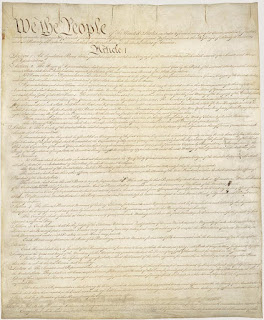EQUAL EDUCATION AMENDMENT Section 1. Equality of Educational opportunity under the law shall not be denied or abridged by the United States or any state on account of race, sex, income or place of residence. Section 2. The Congress shall have the power to enforce, by appropriate legislation, the provisions of this article.
Would an equal education amendment have sufficient support in Congress? That seems doubtful. Would the required two thirds of the states ratify it? Probably not. But just raising the issue of such an amendment would focus attention on the inequities.
Who would oppose such an amendment? In a Republican dominated House and Senate, there will be plenty of opponents. And what would be their stated grounds of opposition? That an equal education amendment establishes excessive federal control over what are properly state and local matters. But in the Bush years Republicans took the lead in the most massive federal infringement of state and local control of schooling in our history. The No Child Left Behind Act and its successor.
Of course the most vocifersous opposition would come from those who benefit from the present inequalities. Barring massive new federal and state spending to raise raise all education funding to the same level, the more advantaged states and communities would have to forfeit their present advantage. And you can bet their representatives would oppose that.
The federal government commands the necessary resources to provide every child with equal educational opportunity. But to do this, legislators and the White House would have to rearrange national priorities. We might, for example, have to invest more in education and less in the warfare state. This would threaten powerful defense industry types who paid to get our politicians elected in the first place.
That gets us to the main advantage of putting an Equal Education Amendment on the table; it forces hands and reveals agendas. It puts a question out there that most politicians dearly want to dodge. The question is: What is more important, providing every American child with equal educational opportunity, or serving the special interests you are presently beholden to? It’s high time that we ask that question. But don't hold your breath for an honest answer. Count the money instead.
Although there is one other consideration that should be entertained. Perhaps extra financial resources directed at economically disadvantaged schools would be throwing good money after bad. Why think that kids who very often fail to take advantage of present opportunities be likely to take advantage of better ones. After all, a lot of these kids don't even show up a goodly portion of the time, are contemptuous of the opportunities presently provided and bully anyone who takes them seriously. Why pay more taxes for that? -- GKC

No comments:
Post a Comment